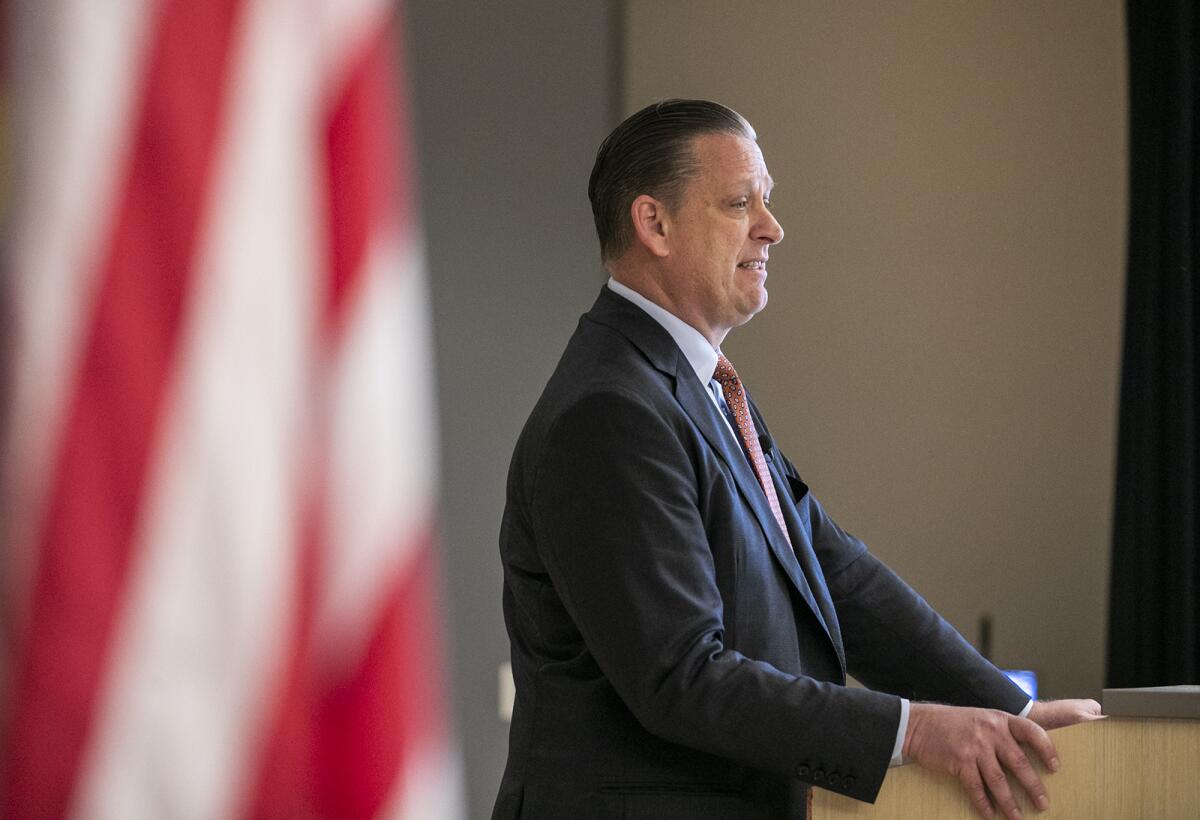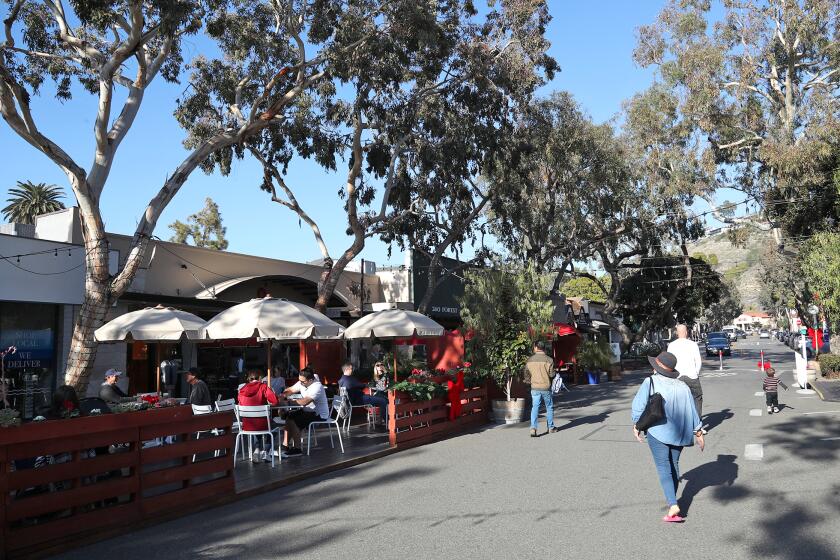Strickland, opponent of state housing mandate, responds to reports he lives in affordable housing

Huntington Beach Mayor Tony Strickland remains opposed to the construction of large multifamily units in his city and responded to reports that the condo he lives in is part of a development for low-income families by saying he’s not against affordable housing.
His residence in the Cape Ann development on the 18000 block of Breezy Lane in west side of Huntington Beach is publicly listed as a state mandated affordable housing unit. Strickland’s wife purchased the four-bedroom property with her former husband in 2000 at a price of $319,000.
Strickland declared his interest in the property in documents filed during his campaign for City Council and said he does not actually own it. He said its deed rests with a living trust set up to benefit his wife’s children in case she were to unexpectedly die.
He added that he is “for development. I’m just against the high rise high density urbanization of Huntington Beach that’s being forced on us.”
“As mayor, I would have supported the Cape Ann development,” Strickland said. “Frankly, there’s other developments I would support so long they fit within our suburban and coastal community feel. The place I live in is a two-story condo. It’s not this high-rise, high-density facility that the state’s trying to mandate on us.”
He and other members of the City Council elected in December have been at odds with the state over its Regional Housing Needs Assessment. The recurring review lays out a broad plan for home development in California. It currently mandates numerous communities to construct more homes for people of all income levels in response to an ongoing housing crisis and requires Huntington Beach to accommodate development of 13,368 new units by 2029.
A chief component of those are accessory dwelling units, also known as “granny flats.” These are additions to existing property that contain a full kitchen and bathroom. The city had stopped accepting new applications for those until they were sued by California Atty. Gen. Rob Bonta and the Department of Housing and Community Development on March 8. The next day, Huntington Beach officials announced they had filed a suit against the state alleging the Regional Housing Needs Assessment violated their chartered authority to zone property.
The city also requested a temporary restraining order to halt the enforcement of state housing laws alongside their suit. That request was denied by a federal judge on Tuesday.
“I’ve said it before and I’ll say it again: Local governments don’t get to pick and choose which state laws they want to follow,” Bonta wrote in a statement following the denial of the city’s request. “Huntington Beach’s lawsuit is another baseless and obstructionist attempt by the city to defy state housing laws.”
The city did have a plan as recently as last fall that would have put it in compliance with the assessment. But the City Council has held off on voting on it. It was brought up for consideration Tuesday, but was tabled for further discussion at their next meeting on April 4.
Strickland said the city is “built out” and would not be able to support the kind of growth officials in Sacramento are telling local authorities to make. He believes meeting the requirements of the assessment would urbanize Huntington Beach in a way that would potentially drive out longtime residents.
“We’re 95% built out, and the city was built out in a wonderful way that maintains a great quality of life for citizens,” Strickland said. “Me, as mayor, I have to fight to protect that quality of life that people come to enjoy here in Huntington Beach.”
He said he will continue to resist directives from the state that would lead to the construction of high-density dwellings in Huntington Beach.
All the latest on Orange County from Orange County.
Get our free TimesOC newsletter.
You may occasionally receive promotional content from the Daily Pilot.




